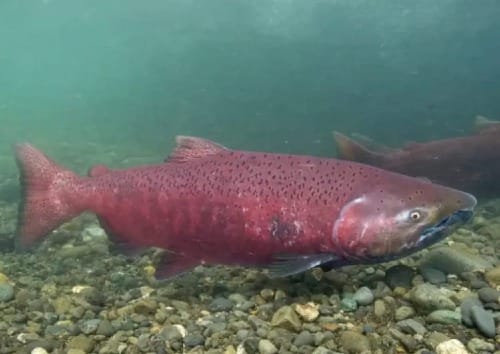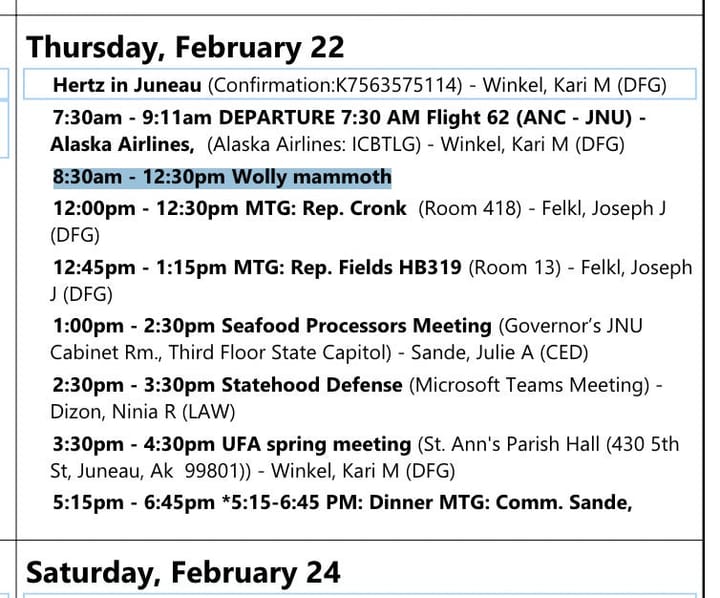Anchorage's electric utility elects two "clean energy" board candidates, re-elects incumbent chair
Friday's election of Susanne Fleek-Green and Jim Nordlund, who ran on “clean energy,” marked a significant shift. But the results weren't a wholesale rejection of Chugach Electric's incumbent board.

This edition of Northern Journal is sponsored by The Boardroom, a shared workspace in Anchorage. I use their array of comfy and light-filled spaces as an alternative to my home office, and I also enjoy the free kombucha and convenient access to downtown. Check out membership options here.
Members of Chugach Electric Association, the Anchorage-based cooperative utility that generates nearly half of urban Alaska’s power, rejected one incumbent and elected two new board members who campaigned on an aggressive shift toward renewable energy in an election that ended Friday.
The election of challengers Susanne Fleek-Green and Jim Nordlund, who campaigned as “clean energy candidates,” marks a significant shift in Chugach’s seven-member board. It comes as activists push the utility to more quickly integrate renewable power sources, amid warnings of an impending crunch in local natural gas supplies.
Northern Journal is a reader-supported publication. To receive new posts and support my work, consider becoming a free or paid subscriber.
But Friday’s results were not a wholesale rejection of the existing board: Members also re-elected Chugach’s current board chair, Bettina Chastain. Chastain, with 6,258 votes, barely edged a third candidate, Shaina Kilcoyne, who allied with Fleek-Green and Nordlund and received 6,002 votes.
Harold Hollis, the other incumbent up for re-election, received 4,944 votes.
Fleek-Green, a national park superintendent who once managed the re-election campaign of Democratic former U.S. Sen. Mark Begich, received 6,725 votes.
Nordlund, who has previously held a Chugach board seat and also once served in the state House as a Democrat, received 6,417 votes, and he and Fleek-Green will serve four-year terms.
Chastain, an executive and engineering consultant, will serve two years to finish the term of a former board member who left before she was up for re-election.
This year’s elections are the first since urban Alaska’s major natural gas provider, Hilcorp, cautioned that it may not be able to keep supplying fuel at the same rate when current utility contracts expire over the next decade.
That warning has prompted a fierce debate about how much renewable power sources could fill the resulting gaps, and whether Chugach and other utilities will need to sign contracts to import liquefied natural gas. And that debate fueled an unusually intense Chugach board election this year.
Member turnout, at nearly 16%, or 14,156 votes, was one-third higher than last year’s 11.8%.
Fleek-Green and Kilcoyne went door to door in search of votes, climate activists made phone calls to Chugach members and candidates made the rounds on talk radio shows.
The results tilted in favor of the clean energy candidates, all three of whom endorsed a bill in the Alaska Legislature that would require the state’s urban utilities to produce 80% of their power from renewable sources by 2040.
“I think the turnout shows members want to be engaged with the direction and big decisions facing Chugach. Members appreciated the personal phone calls and face to face conversations,” Fleek-Green said in a text message. “Also, they do want Chugach and Southcentral Alaska to more aggressively adopt renewable energy sources.”
Chastain touted Chugach’s existing, non-binding goals to reduce its carbon emissions by 50% by 2040.
But she and two other candidates she ran with as part of the “Chugach Stability” ticket — Brad Authier and Hollis — opposed the renewable energy mandate, warning that it could cause electricity prices to rise.
Authier received 4,056 votes.
Fleek-Green and Nordlund were immediately sworn in late Friday after the election results were announced. The board is expected to elect a new chair at a meeting next week.
Northern Journal is a newsletter written by me, Anchorage journalist Nat Herz. It’s free to subscribe, and stories are also free to Alaska news outlets to republish through a partnership with the Alaska Beacon.
My goal is reaching the broadest possible audience of Alaskans. But if you can afford it, please consider supporting my work with a $100 annual or $10 monthly voluntary paid membership — these are currently my only sources of revenue for this project. Your support allows me to stay independent and untethered to the demands of the day-to-day news cycle. If you’ve already subscribed, thank you.



